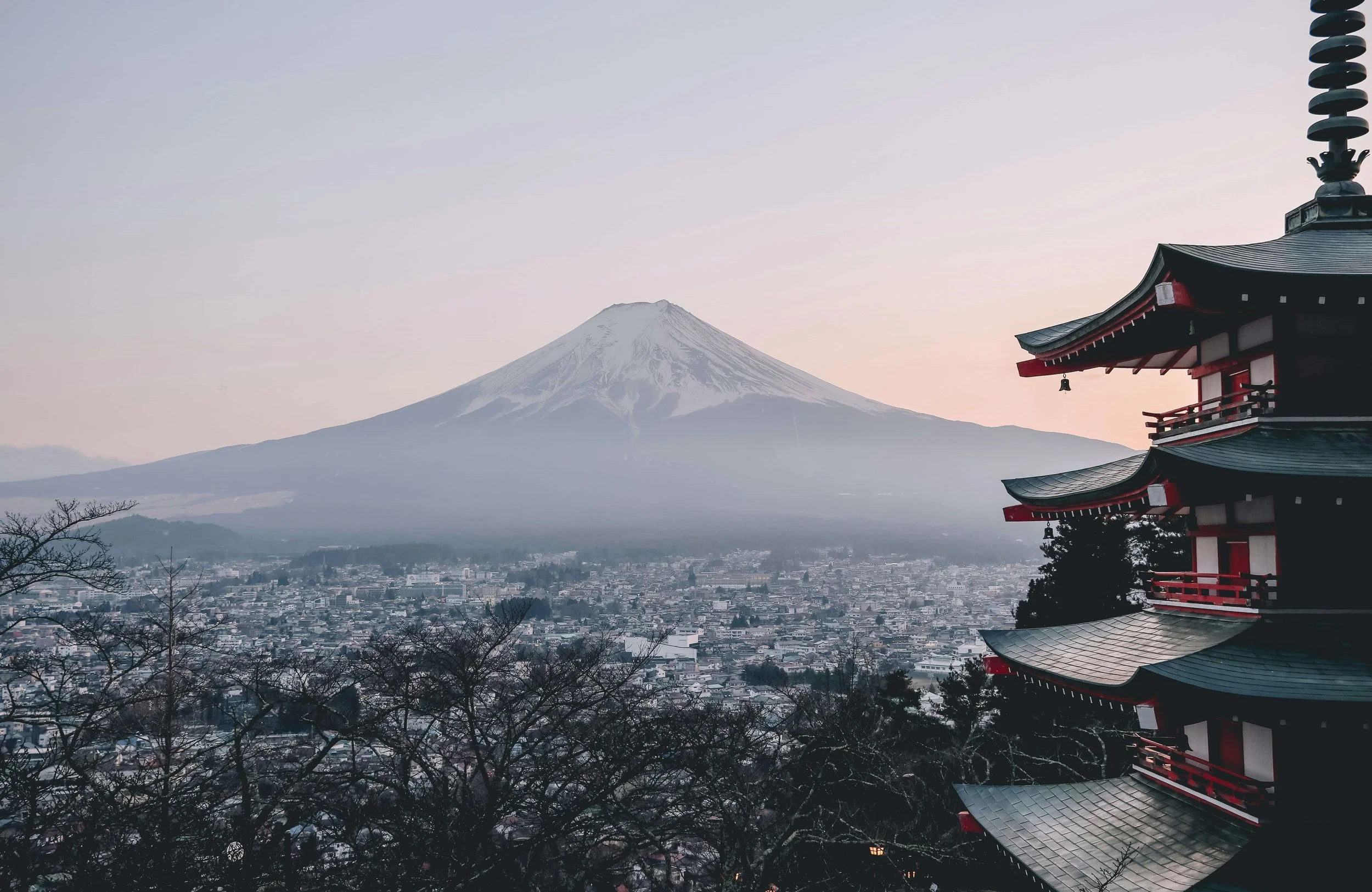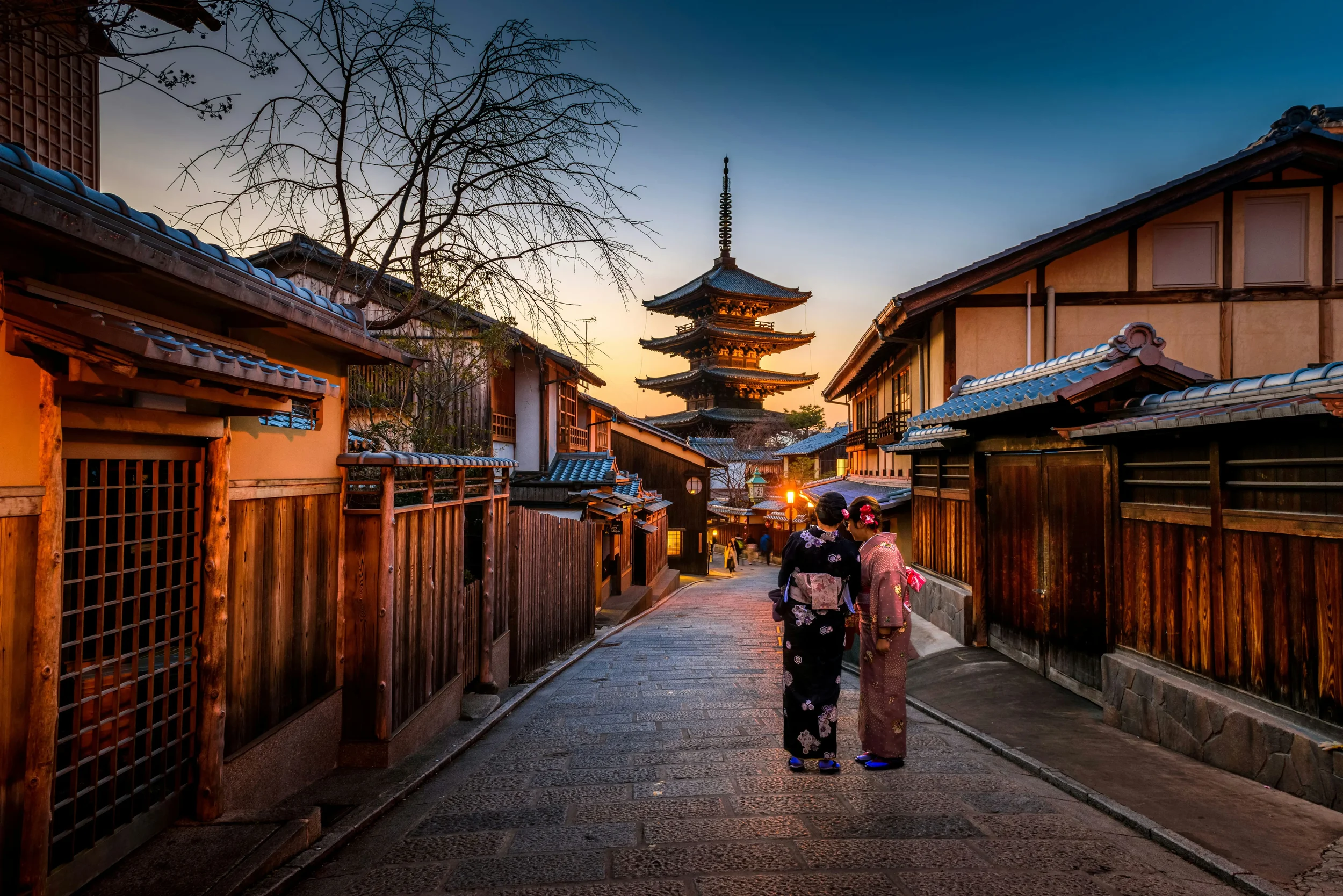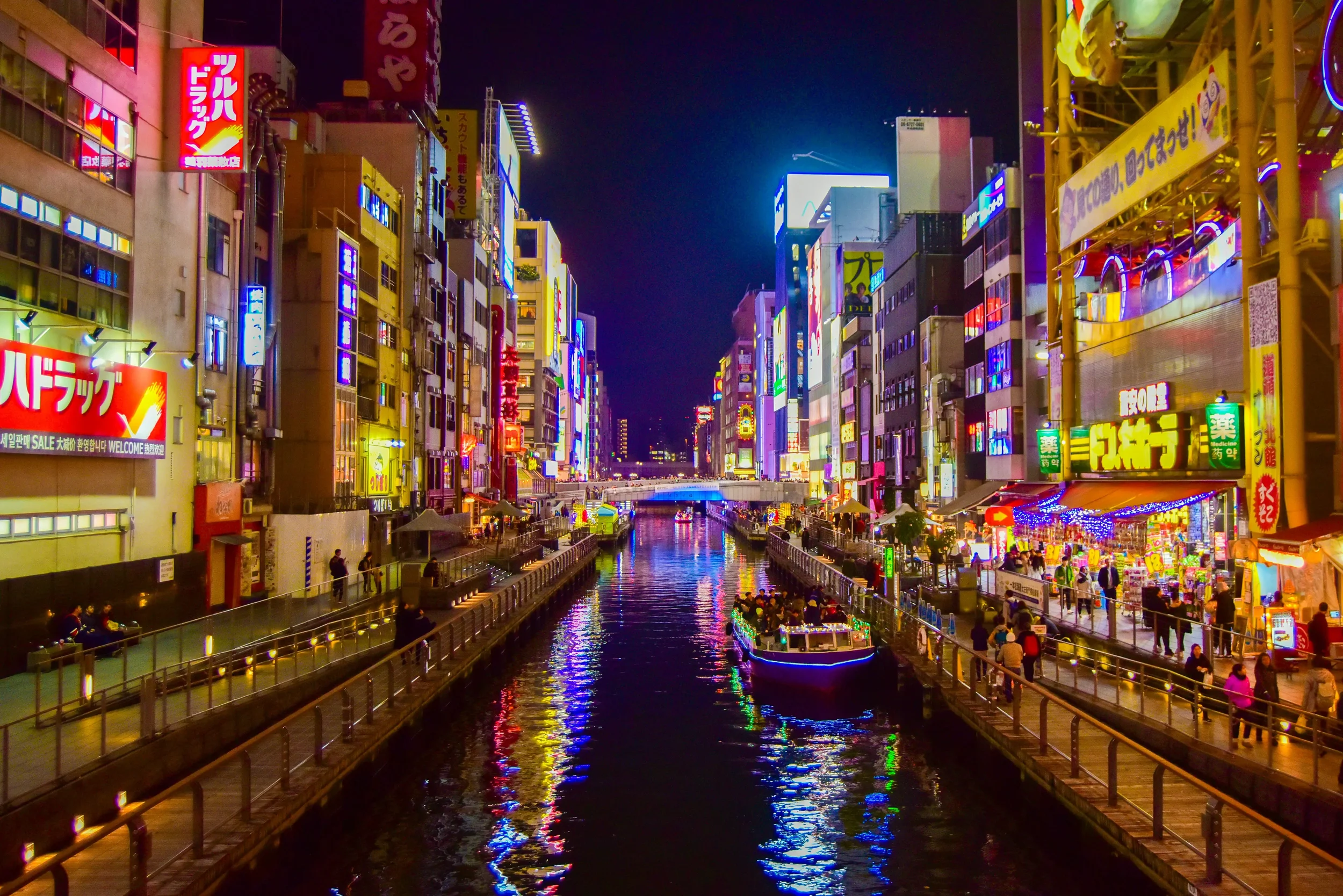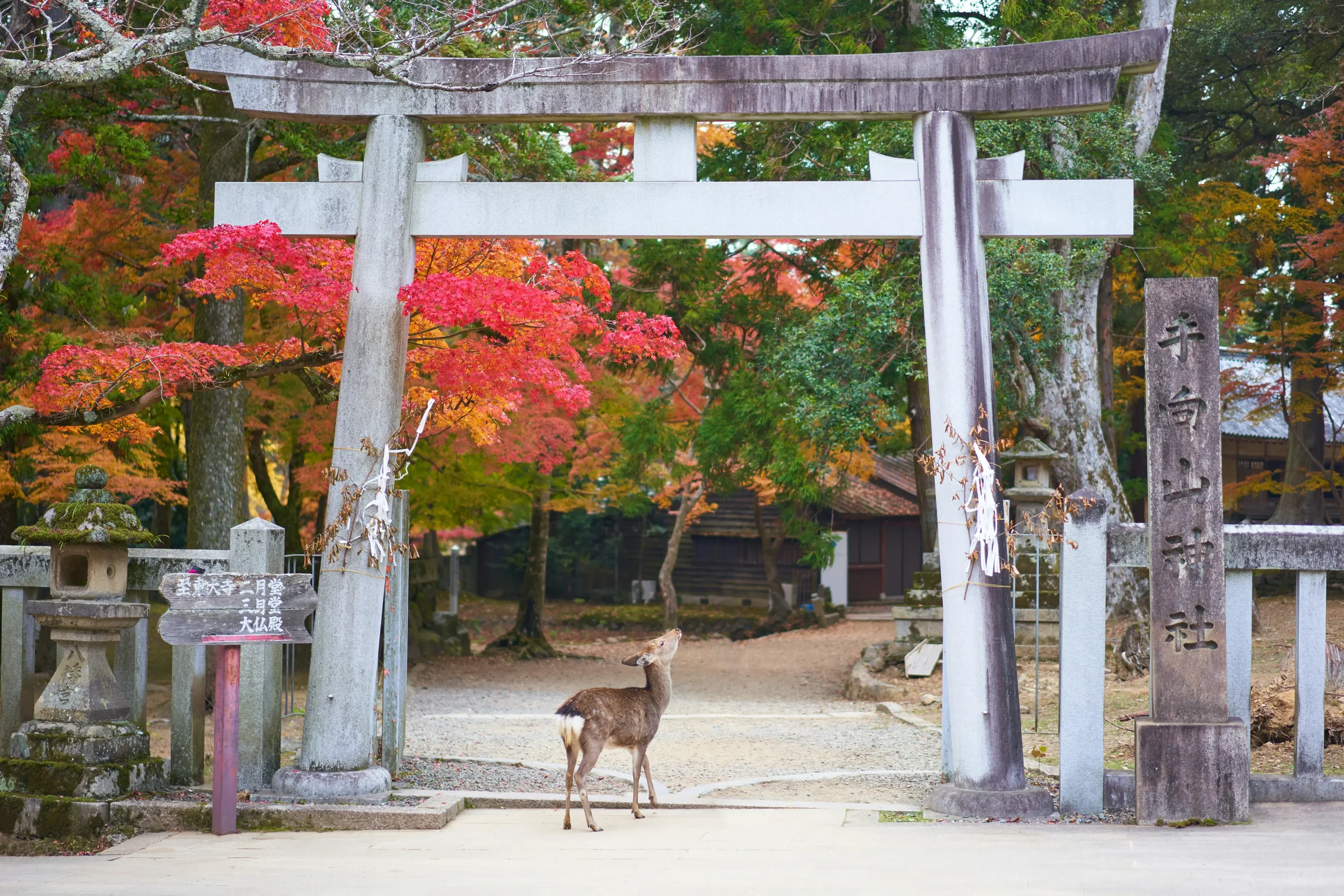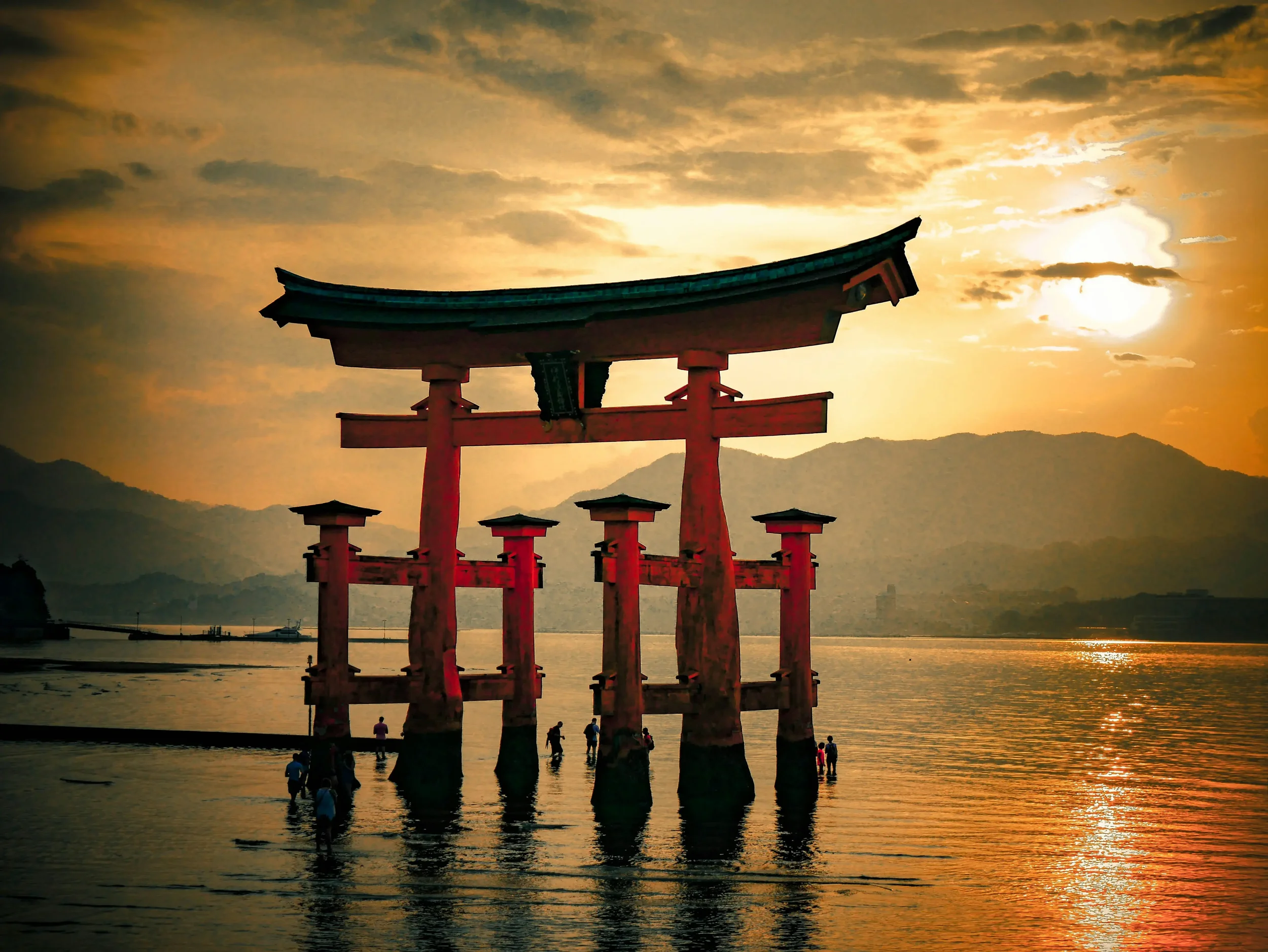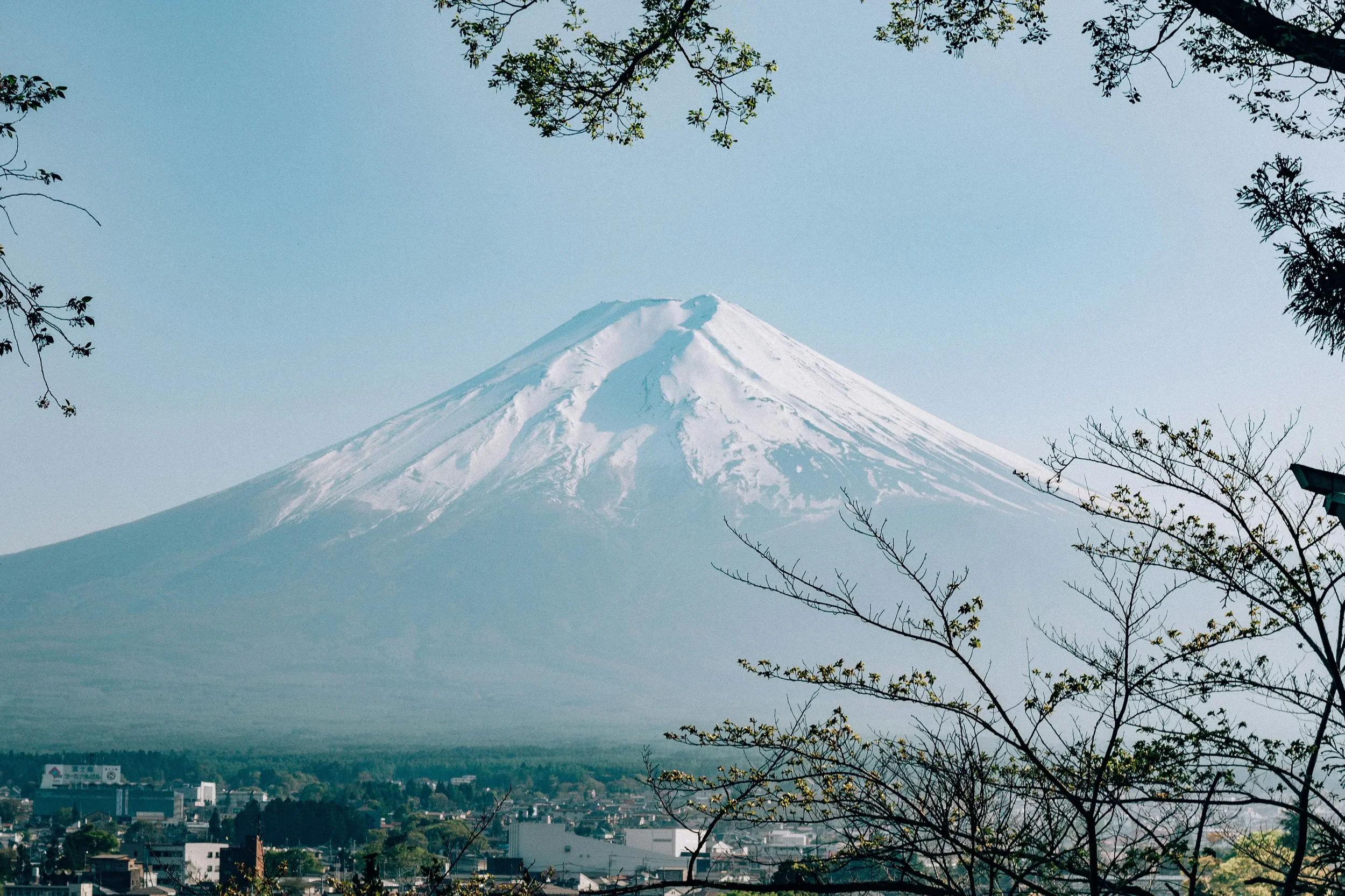JAPAN
-
From the neon-lit futuristic streets of Tokyo to the serene bamboo groves of Kyoto, Japan offers an intoxicating blend of ancient tradition and cutting-edge modernity. A perennial favourite among travellers, it’s a destination where every turn reveals a new wonder, perfect for those seeking both urban adventure and tranquil escapes.
Most journeys kick off in Tokyo, a sprawling metropolis that pulses with an electrifying energy. Dive into the vibrant chaos of Shibuya Crossing, explore the historic temples of Asakusa, or immerse yourself in the quirky subcultures of Harajuku. The city’s efficient public transport makes it easy to navigate its diverse districts, from the skyscraper views of Shinjuku to the artistic haven of Ueno.
Beyond the capital, the cultural heart of Japan beats strongest in Kyoto. Here, you’ll wander through ancient temples, picturesque geisha districts like Gion, and stunning zen gardens, all offering a profound glimpse into Japan's imperial past. Nara, a short trip away, beckons with its friendly deer and the magnificent Todai-ji Temple.
For outdoor enthusiasts, the Japanese Alps provide breathtaking landscapes for hiking and winter sports, while the iconic Mount Fuji stands majestically, a symbol of Japan's natural beauty. And for a taste of authentic local life, venture to the charming onsen towns or explore the bustling food markets, where culinary delights await at every corner. Whether you’re racing on a bullet train, finding peace in a traditional garden, or savouring a bowl of ramen, Japan promises an unforgettable journey that will leave you captivated.
-
Japan's climate is as varied as its landscapes, spanning from the snowy north to the subtropical south. Understanding the seasons is key to planning your perfect adventure, whether you're chasing cherry blossoms or fresh powder.
Spring (March - May): The Blossom Spectacle
Visibility: Generally clear skies, especially for viewing iconic cherry blossoms (sakura) and plum blossoms.
Temperatures: Mild and pleasant, typically ranging from 5∘−18∘C (41∘−64∘F) in major cities like Tokyo and Kyoto, gradually warming through the season.
Conditions: Ideal for sightseeing, hiking, and enjoying outdoor parks as nature bursts into vibrant color. Can be busy, especially during Golden Week (late April to early May).
Ideal for: Cherry blossom viewing parties (hanami), city exploration, and enjoying pleasant weather before the summer heat.
Summer (June - August): Festivals and Humidity
Temperatures: Hot and humid across most of the main islands, often reaching 25∘−30∘C (77∘−86∘F) or higher in cities. Hokkaido in the north offers cooler, drier conditions.
Visibility: Can be hazy due to humidity, with frequent cloud cover.
Conditions: Begins with the rainy season (tsuyu) in June, bringing significant rainfall and increasing humidity. Trails can be muddy, but it's prime season for vibrant festivals (matsuri) and spectacular fireworks displays (hanabi taikai).
Ideal for: Climbing Mount Fuji (July-August only), exploring cooler mountain regions, beach trips (especially in Okinawa), and experiencing lively summer festivals.
Autumn (September - November): Fiery Foliage
Visibility: Excellent, with crisp, clear skies perfect for enjoying the breathtaking autumn foliage (koyo).
Temperatures: Cool and comfortable, gradually dropping from 20∘−25∘C (68∘−77∘F) in September to 10∘−15∘C (50∘−59∘F) by November in central regions.
Conditions: Stable weather with less rainfall than summer. Trails are usually dry and well-maintained, making it fantastic for hiking. Can be crowded at popular leaf-viewing spots.
Ideal for: Hiking in the Japanese Alps, exploring temples and gardens bathed in autumn colors, and enjoying seasonal foods.
Winter (December - February): Snow and Onsens
Temperatures: Cold across most of Japan, dropping to freezing or below in northern and mountainous regions. Tokyo and other southern cities are milder, often 0∘−10∘C (32∘−50∘F).
Visibility: Generally clear and sunny, offering stunning views of snow-capped peaks.
Conditions: Heavy snowfall in northern Honshu and Hokkaido makes for world-class skiing and snowboarding. Lower altitude areas are cold but often dry.
Ideal for: Skiing/snowboarding in Hokkaido or the Japanese Alps, relaxing in traditional hot springs (onsen), witnessing the Sapporo Snow Festival, and enjoying less crowded cities (outside of New Year).
Important Tip: Japan's public transport is excellent, but during peak seasons like cherry blossom time, Golden Week, and autumn foliage, expect heavier crowds and book accommodation and train tickets well in advance. Always pack layers as temperatures can vary significantly, especially when traveling between different regions or altitudes.
-
Navigating Japan's entry requirements is generally straightforward for many nationalities.
UK, EU & US passport holders:
Good news! Citizens of the UK, most EU countries, and the US are generally visa-exempt for short-term tourist stays of up to 90 days. This means you typically don't need to apply for a visa in advance.
Requirements for Visa-Exempt Entry:
Passport Validity: Your passport should be valid for the entire duration of your stay in Japan. While not always strictly enforced, having at least six months of validity beyond your intended departure date is often recommended for international travel.
Blank Passport Pages: Ensure you have at least one blank page for entry and exit stamps.
Proof of Onward/Return Travel: While not always requested, you may be asked to show proof of a confirmed return or onward ticket out of Japan. It's wise to have this ready.
Proof of Sufficient Funds: You might be asked to demonstrate that you have enough funds to support yourself during your stay. There isn't a fixed amount, but typically enough for accommodation, food, and transport.
Purpose of Trip: Your visit must be for tourism purposes. Engaging in paid work is strictly prohibited on a tourist entry.
The JAPAN eVISA System: Japan has introduced an eVISA system for nationals of certain countries (including the UK and US, as of May 2025). If eligible, you can apply online for a single-entry short-term stay visa (up to 90 days). This provides an electronic visa, meaning no physical sticker in your passport. You'll need to display a "Visa issuance notice" on your device upon arrival. Always check the official Ministry of Foreign Affairs of Japan website for the most current list of eligible countries and application procedures.
Extending Your Stay (Visa-Exempt): If you wish to stay longer than your initial 90-day visa-exempt period, some nationalities (including those from the UK, Austria, Germany, Liechtenstein, Mexico, Switzerland, and Ireland) may apply for an extension of stay for up to a maximum of six months in total.
Process: You'll need to apply at your nearest Regional Immigration Services Bureau office before your initial 90-day period expires. This typically involves filling out forms, providing details of your itinerary and finances, and a letter explaining why you want to extend.
Cost: The application fee is currently ¥4,000 (around US$25-30), usually paid via a revenue stamp. (Note: Fees are subject to change, with potential increases effective April 1, 2025, to ¥6,000 for physical filing).
Important: Extensions are not guaranteed and are granted at the discretion of immigration authorities. It's often easier to leave and re-enter if your nationality allows for another visa-exempt entry, though this strategy should be used cautiously and in line with immigration rules.
Other Important Notes:
Passport Carry Requirement: It is a legal requirement in Japan to always carry your passport or Residence Card (if applicable). Police may ask to see it.
Overstay Fines: Overstaying your permitted period of stay is a serious offense in Japan. Penalties can include fines (up to ¥3,000,000, or approx. US$19,000), imprisonment (up to three years), and deportation, often accompanied by a ban from re-entering Japan for a significant period (typically five years). Do NOT overstay your visa under any circumstances.
Medication: Japan has very strict laws regarding certain medications, including some over-the-counter and prescription drugs common in other countries (e.g., those containing Pseudoephedrine or Codeine). Always check with the Japanese Embassy or Consulate in your country before traveling with any medication to ensure it's permitted.
Visit Japan Web: For a smoother entry process, you can use the "Visit Japan Web" online service to pre-register your immigration and customs information, generating QR codes for faster clearance at the airport.
-
Currency: Japanese Yen (JPY / ¥)
Japan has a reputation for being expensive, but with smart planning, it's very possible to explore on a backpacker budget. While credit cards are increasingly accepted, especially in major cities, cash remains king for many smaller establishments, local transport, vending machines, and in more rural areas. Always carry a good amount of yen.
Best Way to Access Money:
ATMs: Widely available, particularly at 7-Eleven, Lawson, and FamilyMart convenience stores, as well as at Japan Post Offices. These ATMs are generally user-friendly for foreign cards and offer English menus.
Fees: While 7-Eleven ATMs are often fee-free, other convenience store or bank ATMs might charge a small fee per transaction (typically around ¥110-220, or approx. US$0.70-1.40). Your home bank might also charge international transaction fees.
Withdrawal Limits: ATMs typically have withdrawal limits, often around ¥50,000 - ¥100,000 (approx. US$320-640) per transaction. You might need to make multiple withdrawals for larger amounts.
Travel Cards: Using a fee-free travel card (like Revolut, Wise, or Monzo) is highly recommended. These cards often offer better exchange rates and can help you avoid or minimize foreign transaction fees and ATM charges from your home bank. Always choose to be charged in JPY if given the option at the ATM to avoid dynamic currency conversion (DCC) fees.
Money Exchange: You can exchange major currencies (USD, EUR, GBP) at international airports, larger banks, and some dedicated money exchange counters in major cities. Rates at airports can be less favorable.
Don't Bring USD (or other foreign currency) to Spend: Unlike some countries, US Dollars or other foreign currencies are generally not accepted for direct payment in Japan, except perhaps at some major international airports. You'll need to exchange your currency for yen or withdraw yen from an ATM.
Typical Daily Backpacker Budget: ¥5,000 – ¥13,000/day (approx. US32–US85 USD)
This range should cover:
Accommodation: A bed in a well-located hostel dorm or a budget capsule hotel. Private rooms in hostels or cheap business hotels will push you towards the higher end.
Food: Delicious and affordable meals from convenience stores (konbini), local ramen or udon shops, or supermarket deals.
Local Transport: Daily subway/bus fares within cities. Major long-distance train travel (like Shinkansen) is a significant expense and is usually budgeted separately, often with a Japan Rail Pass (see tips below).
Activities: Entrance fees for some temples, gardens, or museums. Many shrines and some attractions are free.
Tips for Budgeting in Japan:
Japan Rail Pass: If you plan extensive long-distance travel on bullet trains (Shinkansen), consider purchasing a Japan Rail Pass before you arrive in Japan. It can offer significant savings, but only if your itinerary justifies the cost. Calculate if it's worth it for your specific route. Note: JR Pass prices increased significantly in October 2023.
IC Cards (Suica/Pasmo): While not a money-saver, getting a rechargeable IC card (like Suica or Pasmo, available at major train stations) makes local transport incredibly convenient. You can also use them for purchases at many convenience stores and vending machines.
Convenience Store Meals: Japanese convenience stores (7-Eleven, Lawson, FamilyMart) are a budget traveler's best friend. They offer a fantastic selection of fresh, high-quality, and affordable meals, including sushi, onigiri (rice balls), sandwiches, hot foods, and drinks. Perfect for breakfast, lunch, or a quick dinner.
100-Yen Shops: Stores like Daiso, Seria, and Can Do are incredible for cheap snacks, drinks, souvenirs, and travel essentials – everything for just ¥100 (plus tax).
Water: Tap water in Japan is safe to drink. Carry a reusable water bottle and refill it to save money and reduce plastic waste. Many cafes and restaurants also offer free water.
Avoid Taxis: Taxis in Japan are expensive. Rely on the incredibly efficient and extensive public transport network (trains, subways, buses) instead.
Hostels & Capsule Hotels: These are your go-to for affordable accommodation. Book well in advance, especially during peak seasons.
Late-Day Supermarket Discounts: Head to supermarkets in the evening (often an hour or two before closing) for discounts on ready-to-eat meals, bento boxes, and fresh produce.
Mobile Data: Consider a tourist SIM card or pocket Wi-Fi rental for staying connected. While Wi-Fi is available, having your own data for navigation is invaluable. Look for options like those from Sakura Mobile, Mobal, or IIJmio, or consider an eSIM from providers like Airalo. Prices vary based on data and duration.
Free Attractions: Many temples, shrines, and parks have free entry, offering rich cultural experiences without breaking the bank.
No Bargaining: Bargaining is generally not customary in Japan, especially in shops and restaurants. Prices are usually fixed.
Tipping: Tipping is not part of Japanese culture and can sometimes even be considered rude. Excellent service is simply expected.
By keeping these tips in mind, you can enjoy an incredible and immersive journey through Japan without completely draining your wallet!
Main Destinations

